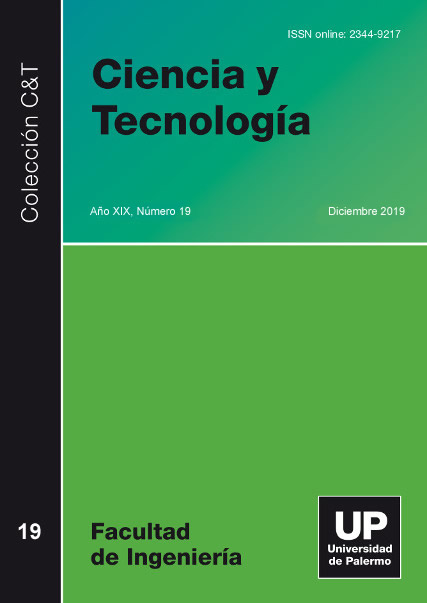Diagnóstico de Enfermedades Card´ıacas con los algoritmos supervisados Naives Bayesian
Abstract
Heart disease is the leading cause of the death in the present. This paper contrasts the performance between the different supervised algorithms of Machine Learning, applied in medicine field, with the Naive Bayes supervised algorithms to help classify patients prone to heart disease. As data source, 303 instances of patients with different characteristics were used and analized when the data was proccessed by the respective algorithms. The results with the Naives Bayes algorithm are promising, obtaining an accuracy of 86.81 % using the mentioned data source. This family of algorithm has a better performance compared to other Machine Learning algorithms such as Neural Networks, obtaining more precise results than those expected from humans doctors.
Downloads
References
G. F. Tomaselli and D. P. Zipes, “What causes sudden death in heart failure?” Circulation research, vol. 95, no. 8, pp. 754–763, 2004.
V. Autores, “Risk factors for heart diseases,” urlhttps://www.webmd.com/heart-disease/risk-factors-for-heart- disease.
R. Vijayakrishnan, S. R. Steinhubl, K. Ng, J. Sun, R. J. Byrd,
Z. Daar, B. A. Williams, C. Defilippi, S. Ebadollahi, and W. F. Stewart, “Prevalence of heart failure signs and symptoms in a large primary care population identified through the use of text and data mining of the electronic health record,” Journal of cardiac failure, vol. 20, no. 7, pp. 459–464, 2014.
R. C. Deo, “Machine learning in medicine,” Circulation, vol. 132, no. 20, pp. 1920–1930, 2015.
J. Khan, J. S. Wei, M. Ringner, L. H. Saal, M. Ladanyi, F. Wes- termann, F. Berthold, M. Schwab, C. R. Antonescu, C. Peterson et al., “Classification and diagnostic prediction of cancers using gene expression profiling and artificial neural networks,” Nature medicine, vol. 7, no. 6, p. 673, 2001.
A. Rajkumar and G. S. Reena, “Diagnosis of heart disease using datamining algorithm,” Global journal of computer science and technology, vol. 10, no. 10, pp. 38–43, 2010.
I. H. Witten, E. Frank, M. A. Hall, and C. J. Pal, Data Mining: Practical machine learning tools and techniques. Morgan Kaufmann, 2016.
C. K. GN, “Machine learning types and algorithms,” urlhttps://towardsdatascience.com/machine-learning-types-
and-algorithms-d8b79545a6ec.
J. R. Quinlan, “Induction of decision trees,” Machine learning, vol. 1, no. 1, pp. 81–106, 1986.
H. Zhang, “The optimality of naive bayes,” AA, vol. 1, no. 2, p. 3, 2004.
G. I. Webb and M. J. Pazzani, “Adjusted probability naive bayesian induction,” in Australian Joint Conference on Artificial Intelligence. Springer, 1998, pp. 285–295.
Q. Kuang and L. Zhao, “A practical gpu based knn algorithm,” in Proceedings. The 2009 International Symposium on Computer Science and Computational Technology (ISCSCI 2009). Citeseer, 2009, p. 151.
I. Kononenko, “Machine learning for medical diagnosis: history, state of the art and perspective,” Artificial Intelligence in medi- cine, vol. 23, no. 1, pp. 89–109, 2001.
M. Clinic, “Enfermedad cardiaca,” https://www.mayoclinic.org/es-es/diseases-conditions/heart- disease/symptoms-causes/syc-20353118.
M. N. Today, “Heart disease: Types, causes and treatments,” urlhttps://www.medicalnewstoday.com/articles/237191.php.
S. U. Amin, K. Agarwal, and R. Beg, “Genetic neural network ba- sed data mining in prediction of heart disease using risk factors,” in 2013 IEEE Conference on Information & Communication Technologies. IEEE, 2013, pp. 1227–1231.
T. G. Dietterich, “Ensemble methods in machine learning,” in International workshop on multiple classifier systems. Springer, 2000, pp. 1–15.
D. W. Hosmer Jr, S. Lemeshow, and R. X. Sturdivant, Applied logistic regression. John Wiley & Sons, 2013, vol. 398.
I. Rish et al., “An empirical study of the naive bayes classifier,” in IJCAI 2001 workshop on empirical methods in artificial intelligence, vol. 3, no. 22, 2001, pp. 41–46.
M. J. Mizianty, L. A. Kurgan, and M. R. Ogiela, “Discretization as the enabling technique for the naive bayes and semi-naive bayes-based classification,” The Knowledge Engineering Review, vol. 25, no. 4, pp. 421–449, 2010.
O. Harrison, “Machine learning basics with the k-nearest neighbors algorithm,” https://towardsdatascience.com/machine- learning-basics-with-the-k-nearest-neighbors-algorithm- 6a6e71d01761.
C. Nicholson, “A beginner’s guide to neural networks and deep learning,” https://pathmind.com/wiki/neural-network.
M. L. Repository, “Cleveland database - heart disease dataset,” urlhttp://archive.ics.uci.edu/ml/datasets/Heart+Disease.
The articles published in the journal Ciencia y Tecnología are the exclusive property of their authors. Their opinions and content belong to their authors, and the Universidad de Palermo declines all responsibility for the rights that may arise from reading and/or interpreting the content of the published articles.
The reproduction, use or exploitation by any third party of the published articles is not authorized. Its use is only authorized for exclusively academic and/or research purposes.









